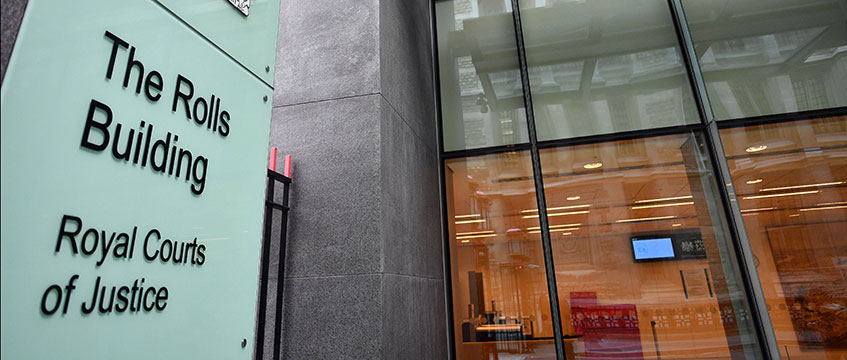Libya’s sovereign wealth fund, the Libyan Investment Authority (LIA), has lost a court dispute with a group of UK property developers which, it claimed, misled them into making an investment in a high-profile hotel development on the outskirts of London.
In a judgment that is more than 100 pages long, High Court judge Mr Justice Miles dismissed all of the claims of conspiracy and dishonesty brought by the LIA.
The case, which was heard in the Rolls Building complex of London’s High Court in November and December, has taken more than five years to reach trial and relates to a business deal signed in 2010.
The case centred on a plan to develop land in Maple Cross, by Junction 17 of the M25 motorway near Potters Bar in Hertfordshire. Property development company International Group Ltd had been developing land in this area for around 25 years. IGL was the first corporate defendant in the case.
According to court papers, IGL, along with other investors, planned to turn the plot into a retail park with a flagship hotel for the Crowne Plaza chain.
In July 2010, the LIA invested in the project by buying a 50% stake in the project company for £10.5m.
The LIA subsequently sued its former business partners, claiming it was misled about the value of the development. The LIA said IGL used letters from property consultant King Sturge to argue that the value of the project was more than £20m, whereas an early indication report by Savills into the market value of the sites said they were worth much less.
The LIA also said the defendants colluded dishonestly with the LIA’s UK executive director, Rajab Layas, who was not acting in the best interests of the LIA.
The hotel development ultimately did not take place, and in March 2018 the hotel site was sold for £8.3m, without the benefit of an agreement with Crowne Plaza owner InterContinental Hotels Group.
The defendants robustly refuted the allegations. They argued, among other things, that the preliminary Savills report related to the value of the land, not the value of the project or the corporate vehicle in which the LIA invested.
They said in court papers that the claim is “without merit and misconceived” and “should never have been made”.
In his ruling, the judge found that the UK executives did not hide information from the LIA, did not act in a dishonest or misleading way and did not attempt to conceal the Savills report from the LIA. They had, in fact, worked closely with Layas, who they believed to be an honest representative of the LIA.
The judge said that Layas had breached his fiduciary duties to the LIA, and had he passed on all of the information he had to his superiors in Libya then they probably would not have continued with the deal in the same form.
Even so, the defendants did not know this, the judge said.
“In brief summary, the defendants believed that Mr Layas was acting genuinely as the representative of the LIA and that he was acting in the LIA’s interests,” the judge said in his ruling.
“They believed that he and the LIA were more interested in the investment returns than the market value of the land. As far as the defendants were concerned, it was for Mr Layas to communicate the views of Savills within the LIA. They were not involved in that and did not know what he had done with the information.
“The claims are dismissed.”
(1) Libyan Investment Authority; (2) LIA Advisory Services (UK) Ltd; (3) Maplecross Holdings Investment Company Ltd v (1) Roger Milner King; (2) International Group Ltd; (3) Beeson Property Investments Ltd; (4) Stoke Park Estates; (5) Charles Montgomery Merry; (6) Conrad Strategic Partners Ltd
Business and Property Courts (Mr Justice Miles) 10 February 2023








